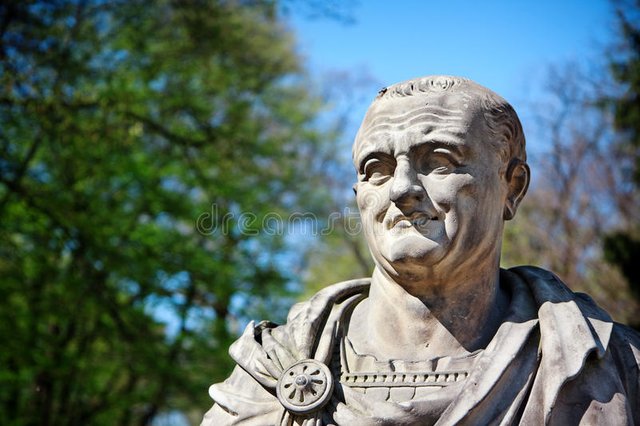Vespasian: The Path To Power

Tito Flavio Sabino Vespasiano (known as Vespasiano) was born on 9 November 9 BC. in the Sabine countryside near Rome, in a relatively poor family whose mother was the sister of a Roman senator. She was a widow at a young age and therefore had to raise two children alone.
Vespasian joined the army and served as a military tribune in Thrace, then he served in Crete and Cyrene and rose to the ranks. He married and had two sons who become the Roman Emperor (Titus and Domitian).
It served as Claude during the campaign to conquer Great Britain in the year 43 AD and led to the Second Legion Augusta conquering the Isle of Wight and then defeating the Durotrigi tribe in Dorset on its strengths Bradbury, Hod Hill, and Maiden Castle.
He served as counsel in 51 AD and as the proconsul of Africa under Nero. He never acquired a personal fortune even though he was accused of being dishonest in his financial transactions. If it had been, it was obviously not good at fraud and embezzlement.
He was sent east 66 AD to wage war against the Jews, and in the region after the death of Nero, the civil war broke out in Italy. His growing reputation as a "safe hands" meant that he was proclaimed Emperor on July 1, 69 in Alexandria, unlike Vitellius, who first declared his loyalty.
It was clearly a popular movement in the eastern part of the empire, with many legions and governors joining in their cause. One of his followers, Antonius Primus, invaded northern Italy and deposed Vitellius on his arrival in Rome. Vespasiano's ambassador, spokesman, and historian, Muciano, took control of the city while awaiting the arrival of Vespasian, which occurred in 70 AD. Since the reign of Vespasian can be dated to the death of Vitellius on December 22, 69, Vespasiano is considered the fourth emperor during the "Year of the Four Emperors."
Vespasian could reestablish arrange in a harried Rome. He made immediate changes in the army, so the rebellious soldiers were replaced by loyal soldiers and worked with the Senate in public administration. His character was very different from some of his last predecessors, including Vitellius and Nero, and he went very well with people of all classes in Rome.
Above all, I had no personal vanity, and I could get along with anyone from every season of life. He was not ashamed of his humble beginnings and ridiculous attempts to create a genealogy that was characteristic of him.
He was very proud of the achievements of one of his sons, Titus, and horrified by the other's behavior, Domitian. Therefore, he was happy to share his triumph in the Jewish wars, 71 AD, with Titus, and made careful that Domitian was kept in moderation.
Vespasian kept on extending the realm and sent Agricola to Wales in 78 AD. He improved the Praetorian Protect and ensured that his positions came just from Italy.
In spite of the fact that it was extremely strong regarding open cash and was instrumental in reestablishing the budgetary prosperity of the domain (chiefly by expanding charges), it likewise left striking structures.These include the Temple of Peace and the Temple of Jupiter Capitolinus, but the most famous is probably the Coliseum, which was begun in 72 AD and built on the deliberately unfinished site of the Nero Palace.
In the summer of 1979, Vespasian's health began to decline, though it was determined to keep working as far as possible. After receiving a new dynasty with the appointment of Titus as the next emperor, he declared that an emperor would die on foot and do just that, until his death on June 24, 79 AD, at the age of 69.
One can not doubt that Vespasian was exactly the man that Rome needed at that moment, given the chaos that preceded his rule. However, it was regrettable that the stability he had created was one of uncertainty in the years to come.